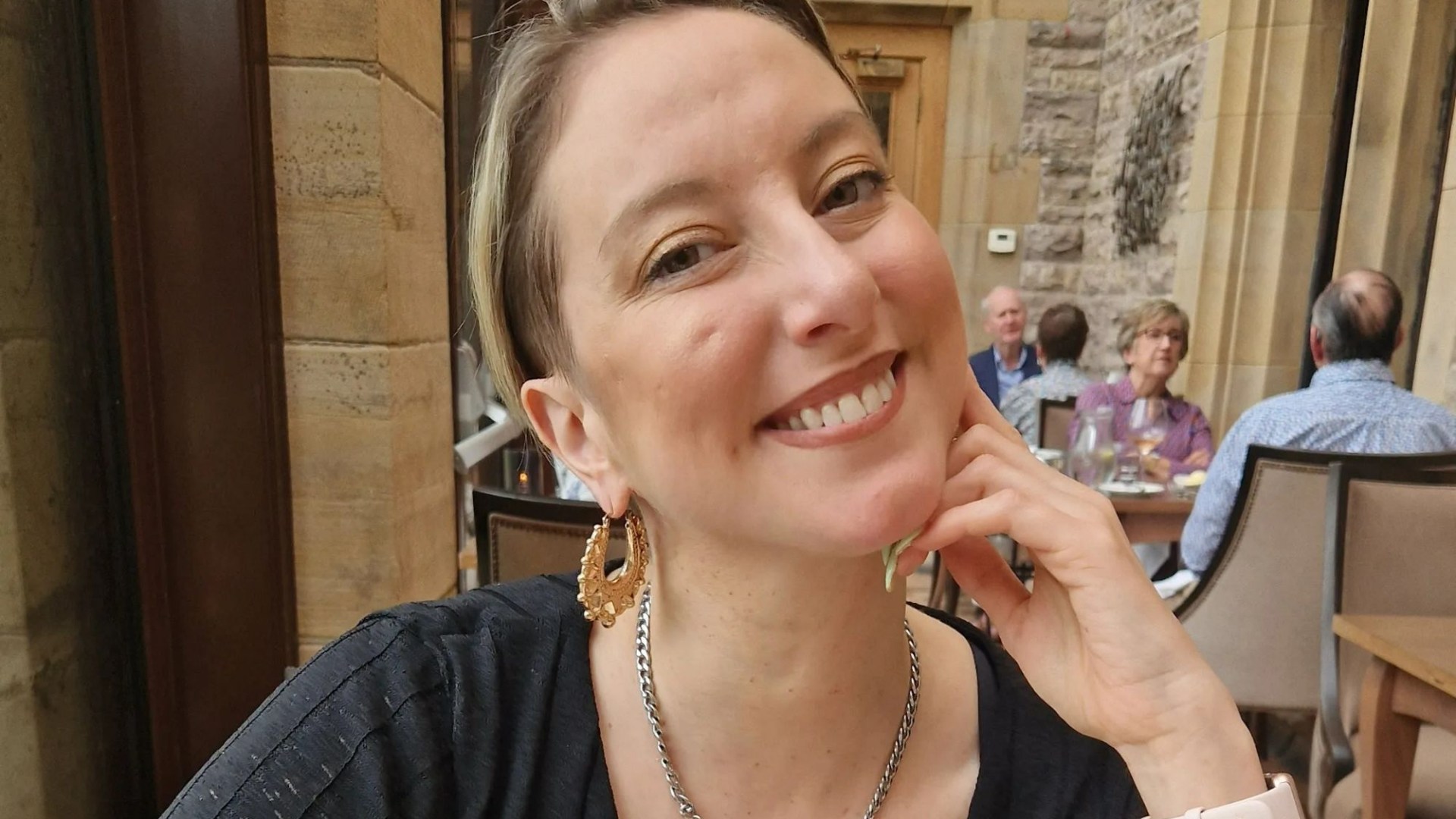A CAFFEINE addict was given just years to live after mistaking her headaches and brain fog for coffee withdrawal.
Abi Feltham, 36, found herself drinking up to 12 cups of coffee a day after kicking her alcohol addiction
7

7

7
Having grappled with drug and alcohol dependency since she was 14 years old, Abi had been sober for four years when she realised that her coffee drinking was reaching extreme levels.
She decided to reduce her intake in November 2023 and started having headaches, nausea and brain fog.
Having previously gone through alcohol withdrawal, she put her symptoms down to her body craving caffeine.
But when they persisted and she struggled with double vision, Abi went to see her doctor and an optician.
Following a CT scan and MRI, the 36-year-old was told they had spotted something that could be malignant and she was taken for brain surgery the following day.
Doctors found and drained a cyst in her brain, which was pushing on a tumour.
Following a second surgery to remove 90 per cent of the growth, Abi was diagnosed with a grade three oligodendroglioma – a rare type of brain tumour – and told she had roughly 15 years left to live.
She is now undergoing radiotherapy which will be followed by a round of chemotherapy, but says her previous addiction recovery has helped her deal with cancer diagnosis.
Abi, a content creator, from Richmond, London, said: “Last year I quit caffeine.
“I got all these symptoms but because I have been through alcohol withdrawal I thought it was caffeine withdrawal.
“I was having headaches, throwing up and having brain fog.
“I definitely didn’t expect a brain tumour but I wasn’t shocked.
“It’s very on brand for me.
“Because I have overcome those previous hardships, I’m able to see that these things don’t last forever.
“These experiences – they are really awful but there is a life after them.”

7

7
Quitting ‘cold turkey’
Abi spent 17 years of her life as an alcoholic, after turning to drink to cope with the loss of her father.
At her worst, she was drinking two 700ml bottles of whiskey and beers a day.
But Abi went “cold turkey” in April 2020 after returning to her childhood home over the pandemic and has been sober ever since.
She went on to get a stable job and meet her partner, Stefan Winder, 30, a personal trainer.
But as an addict, Abi realised she had developed an unhealthy caffeine habit.
She said: “I was drinking a ridiculous amount.
“I was drinking 12 cups of coffee a day.”
I was waking up in the middle of the night screaming in pain
Abi Feltham
Abi quit caffeine and put her symptoms down to withdrawal but when they started again in Easter this year she went to see her doctor.
Initially she was told she had sinusitis and given antibiotics.
But when Abi’s symptoms persisted and she started struggling with her eyesight she went to the opticians in May 2024.
She said: “I was waking up in the middle of the night screaming in pain.
“I got to the point where I had double vision.”
‘Rollercoaster of emotions’
Abi was told her optic nerve was swollen and ended being referred to St Mary’s Hospital, London, where she had an MRI and CT.
She said: “The doctor came in and said there is definitely something there. It could be malignant.”
She was told she needed a craniotomy the very next day – to drain the cyst in her brain and to take a biopsy of the tumour.
Abi said: “They opened my skull up.
“They explained there was a cyst and a tumour. The cyst was getting bigger and bigger and pushing on the tumour – causing the symptoms.
My outlook when it comes to these things is one day at a time. I focus on the future. I have so much living to do
Abi Feltham
“If the cyst hadn’t been there then it probably would have gone undetected.”
Abi’s eyesight immediately improved but she was told she’d need to go for a second surgery later that month.
She said: “He said it’s a lot more aggressive than we thought.
“He said ‘we’re going to have to go in and removed as much as possible’.”
Abi was prepared for the worst – as she was warned the surgery could paralyse her – but doctors at Charing Cross Hospital managed to remove 90 per cent of the tumour.
Abi was then told her official diagnosis.
She said: “He said it was incurable.
“He said ‘I estimate about 15 years’.
“It was a rollercoaster of emotions.”
‘Life on hold’
Abi started radiotherapy in July and will do a round of chemotherapy later this year.
She tries to remain positive and is looking forward to her life after treatment.
Abi said: “It feels like my life is on hold at the moment.
“I have indulged in self pity before.
“When I was in the depths of addiction I went into victim mentality.
The most common symptoms of a brain tumour

More than 12,000 Brits are diagnosed with a primary brain tumour every year — of which around half are cancerous — with 5,300 losing their lives.
The disease is the most deadly cancer in children and adults aged under 40, according to the Brain Tumour Charity.
Brain tumours reduce life expectancies by an average of 27 years, with just 12 per cent of adults surviving five years after diagnosis.
There are two main types, with non-cancerous benign tumours growing more slowly and being less likely to return after treatment.
Cancerous malignant brain tumours can either start in the brain or spread there from elsewhere in the body and are more likely to return.
Brain tumours can cause headaches, seizures, nausea, vomiting and memory problems, according to the NHS.
They can also lead to changes in personality weakness or paralysis on one side of the problem and problems with speech or vision.
The nine most common symptoms are:
- Headaches
- Seizures
- Feeling sick
- Being sick
- Memory problems
- Change in personality
- Weakness or paralysis on one side of the body
- Vision problems
- Speech problems
If you are suffering any of these symptoms, particularly a headache that feels different from the ones you normally get, you should visit your GP.
Source: NHS
“It made me sink deeper and deeper into despair.
“I was just making it worse.
“I’m in this s**t situation now. I know if I start moping around, or feeling sorry for myself it will only make things worse.
“Of course there are moments when I’m really angry or sad. I don’t brush those aside I let myself feel them.
“My outlook when it comes to these things is one day at a time.
“I focus on the future. I have so much living to do.”

7

7




